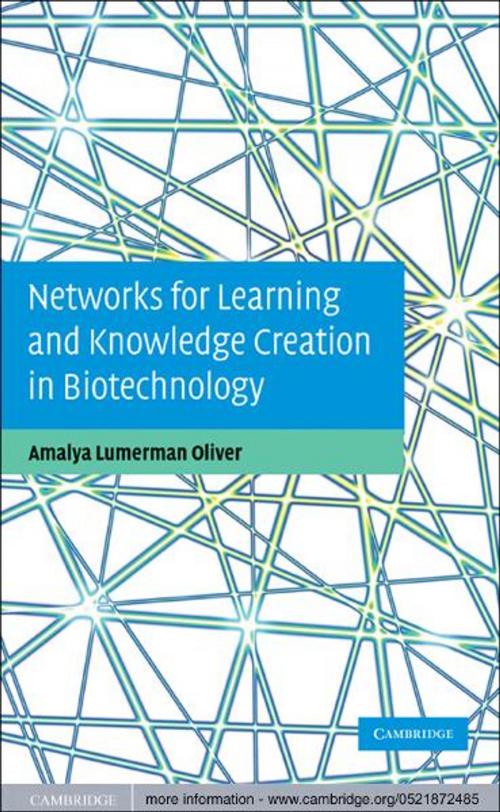Networks for Learning and Knowledge Creation in Biotechnology
Business & Finance, Career Planning & Job Hunting, Entrepreneurship, Entrepreneurship & Small Business| Author: | Amalya Lumerman Oliver | ISBN: | 9780511737732 |
| Publisher: | Cambridge University Press | Publication: | February 9, 2009 |
| Imprint: | Cambridge University Press | Language: | English |
| Author: | Amalya Lumerman Oliver |
| ISBN: | 9780511737732 |
| Publisher: | Cambridge University Press |
| Publication: | February 9, 2009 |
| Imprint: | Cambridge University Press |
| Language: | English |
Scientists in the biotechnology sector have developed a vast array of products and procedures, including drugs, diagnostics, agricultural products and veterinary procedures. This is made possible through various intra- and inter-organizational collaborations between the academic and private sectors, and through the establishment of networks for learning. In Networks for Learning and Knowledge Creation in Biotechnology, Amalya Lumerman Oliver shows how, in many respects, the organizational structure of the industry parallels one of its most important innovations – recombinant DNA (rDNA). She shows how the concept of recombination can be used to explain a number of organizational elements, including biotechnology firms, the form of university-based spin-offs, scientific entrepreneurship, and trust and contracts in learning collaborations and networks. The result is a stimulating account of how multiple theoretical perspectives can be used to understand the structure of the biotechnology industry.
Scientists in the biotechnology sector have developed a vast array of products and procedures, including drugs, diagnostics, agricultural products and veterinary procedures. This is made possible through various intra- and inter-organizational collaborations between the academic and private sectors, and through the establishment of networks for learning. In Networks for Learning and Knowledge Creation in Biotechnology, Amalya Lumerman Oliver shows how, in many respects, the organizational structure of the industry parallels one of its most important innovations – recombinant DNA (rDNA). She shows how the concept of recombination can be used to explain a number of organizational elements, including biotechnology firms, the form of university-based spin-offs, scientific entrepreneurship, and trust and contracts in learning collaborations and networks. The result is a stimulating account of how multiple theoretical perspectives can be used to understand the structure of the biotechnology industry.















